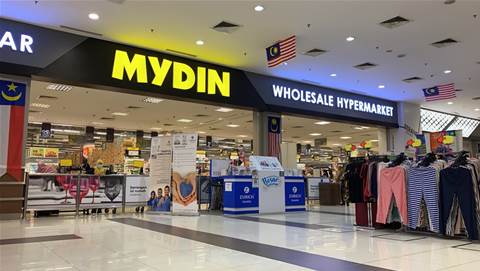Nanyang Polytechnic’s (NYP) School of Engineering has developed an enterprise-to-shopfloor platform that is intended to help precision-engineering manufacturers boost productivity and growth.
NYP’s School of Engineering Deputy Director, Vinn Prabhu, said the platform, developed in collaboration with SAS Institute, harnesses technologies such as artificial intelligence (AI) and the cloud.
"It has shown a significant increase in operational effectiveness” through predictive analytics and forecasting, enabling a “100 percent sampling of parts”, he said.
Specifically, the platform features:
- A predictive analytics system to help enterprises conduct “near-accurate” supply and demand forecasting. Using past data and analytics, the system helps forecast raw materials required during specific time periods, allowing a smooth product delivery process through just-in-time purchase and delivery and optimised warehousing.
- A real-time machine-vision solution that inspects production parts for defects as part of quality control management. Through digital automation, product quality assurance is also enhanced.
- An enhanced Manufacturing Execution System (MES) that is fully customisable to enable companies to optimise manufacturing operations and increase production efficiency.
Dr Prabhu said the platform, which is currently undergoing production trials, will offer Industry 4.0 solutions that incorporate open-source low-cost devices to connect two networks, resulting in cost-effective and scalable solutions.
“With every additional volume of data acquired by the devices, the modelling and training of the AI models will concurrently improve,” he said.
The prototype MES is being tested at Sanwa Plastic Industry to manage and schedule jobs for machining components and plastic injection moulds.
Previously, a mould usually required 100 or more machined metal components, with each component undergoing a stringent quality control check before use, Dr Prabhu said.
Through the MES prototype, Sanwa Plastic Industry is reporting a “15 per cent increase in machine utilisation”, which was brought about by more efficient scheduling of jobs on the shop floor, he added.
“As small and medium-sized enterprises (SMEs) strive towards achieving Singapore’s Smart Nation goals, we are excited to partner SAS to help local manufacturers seize business opportunities in their digitalisation journey and uncover ways to optimise their operational efficiency,” he said.
He added that in collaboration with SAS, NYP aims to “co-create meaningful solutions to propel the next generation of manufacturing technologies, while concurrently mentoring our learners to be better prepared for the future workplace”.
Following the successful outcome of the project, SAS and NYP recently signed a memorandum of understanding (MoU) to continue their collaboration on other initiatives to help SMEs “through their digital transformation journey”.









